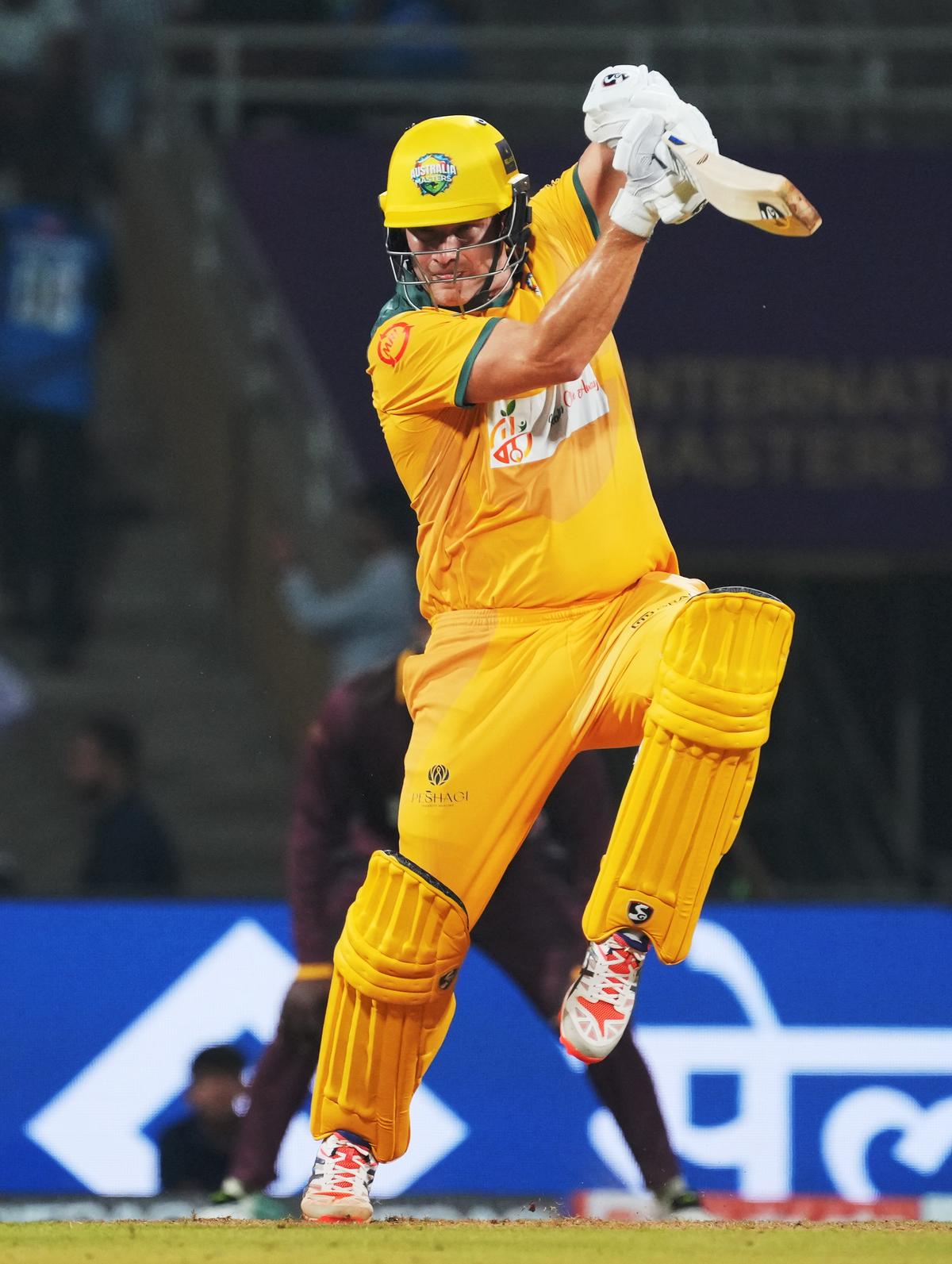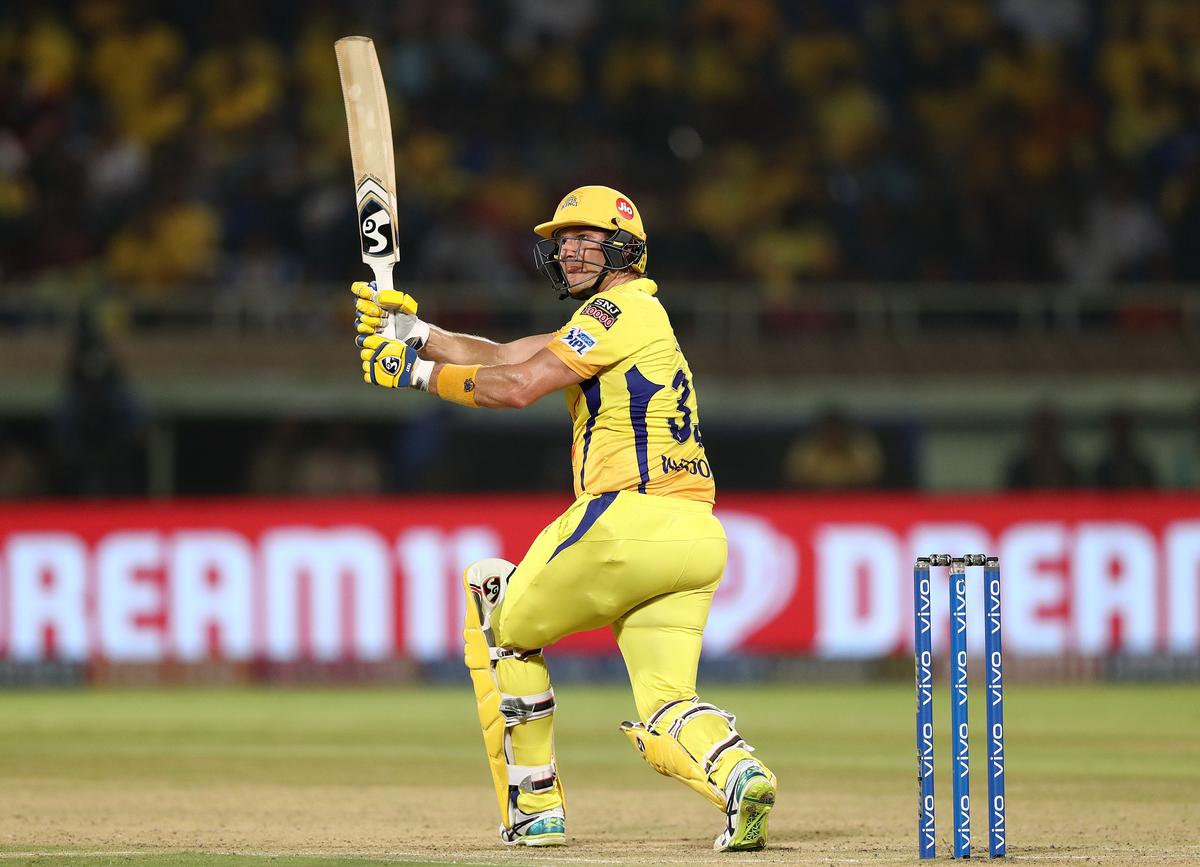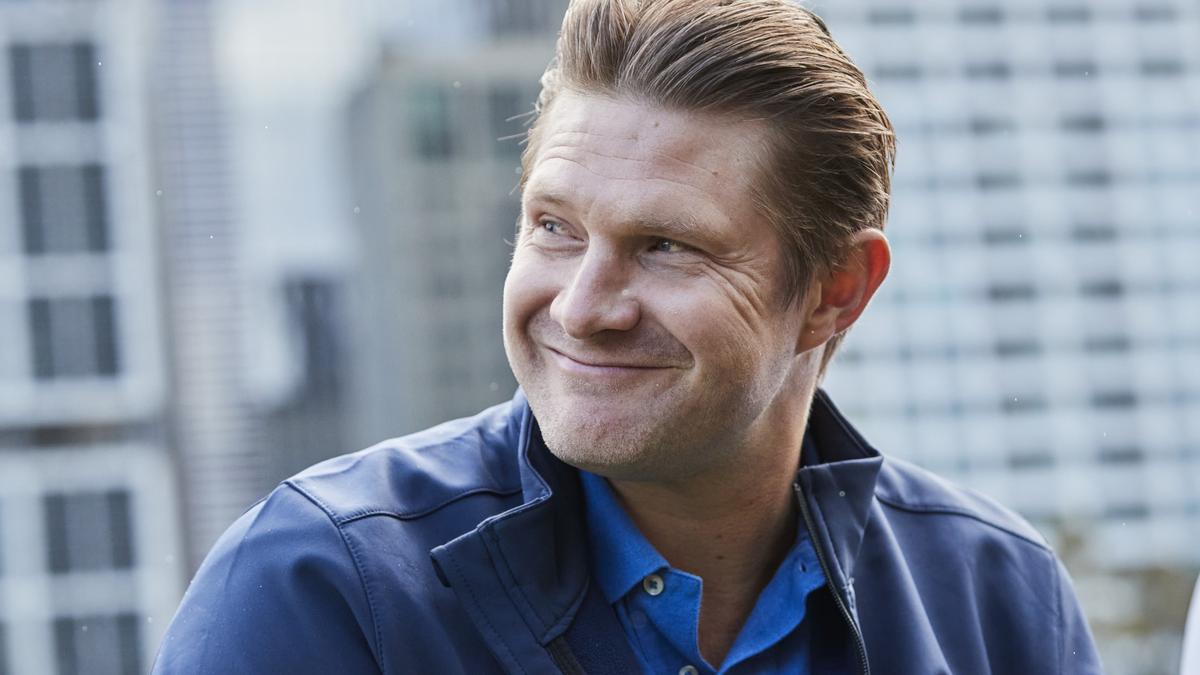Two World Cups. IPL titles with multiple teams. Franchise-cricket coach. And mental health advocate and expert. Shane Watson takes pride in every phase of his professional life on and around a cricket field. The burly all-rounder, currently representing Australia Masters in the International Masters League, opened up on various facets of cricket. Excerpts:
Why does mental health matter so much, especially at the highest level?
It matters across all aspects of our life and not just at the highest level. I only got taught this in 2015, so right towards the back-end — I had retired from Test cricket and One-Day cricket — and then I applied these mental skills from 2016 onwards. It’s changed my life. It turned me around from being about to retire to then, over the next four years or so, having some of the best
performances in my career.
Now the people that I teach this information to, or who read my book (The Winner’s Mindset) or learn it through my online course (shanewatson.au), are having the same impact. They are finally understanding that we are actually in control of our thoughts and want to take control, have the right thoughts at the right time to be able to access all those skills that we spend so much time developing.
How different would Shane Watson’s career have been if you had been made aware of these aspects earlier?
I get asked that question quite a lot, and it’s interesting because from a results perspective, I had a lot of very good results throughout my career. And we can’t control results, even though we’d love to control results, we can’t. So I am not sure if the results would have been any different. I am confident they would have been, but I am not sure. When it comes to dealing with performance, stress, anxiety and worry in the lead-up to games or a big series or a big tournament and then after a performance didn’t go well, there is no doubt that things would have been very different. I wouldn’t have had anywhere near as much performance anxiety.

Still got it: Watson has turned back the clock at the International Masters League. ‘The biggest challenge is not so much the skill,’ he says. ‘It’s just getting your body up and running.’ | Photo credit: PTI
Just like the T20 ecosystem, there seems to be a mushrooming of Masters leagues. Can you elaborate on how challenging it is to do the daily drills all over again?
One of the biggest reasons why most players retire is because of the constant sacrifices and discipline that you got to have to be at your best. That’s where a tournament like the Masters League comes up. For me, it was to be able to put on a good show. I love getting out in the middle a couple of times a week. But then my biggest challenge, and the biggest challenge for most guys now who don’t play, is not so much the skill of batting or bowling. It’s more so just getting your body up and running to manage the workload increase.
So from a workload perspective, which innings was more taxing? The hundred against West Indies Masters or the one in the 2018 IPL final at the Wankhede Stadium?
(Laughs) The 2018 final was a bit more mentally challenging. It being such a big game with CSK coming back into the IPL after a two-year hiatus, and also then how I started off from a batting perspective, [it] was a very slow start. So, 2018 I’d say definitely, but physically, it’s certainly more of a challenge to manage my body 1741380209. But gosh, the 2018 final, those memories of that whole day, that whole evening and after, is something that I’ll cherish forever.
Is it more likely for you and M.S. Dhoni to play in the IML together or for you to make a comeback in the IPL and play with him?
I don’t think any of the above are going to happen. MSD still is going incredibly well, it’s amazing. It just shows the incredible skill that he has got. Knowing that he is not playing — he is obviously training a lot, but he’s not playing any games up until the IPL — and for him just to have that world-class skill available to him with the gloves, and you see his role has changed, but to be able to come in [with] 10 balls to go and hit sixes… that is not easy to do in any stage of your career. He can keep going in the IPL for a number of years. If he’s going to then move into Masters, I don’t think he needs to go down that route.
During the 2008 edition, did any of you envision that IPL would change the global cricket landscape forever?
I do remember it being like a celebration of world cricket. To think that we were a part of something like the IPL, no one envisioned it being a game-changer or something like that. There were some tensions that were starting to boil over within the world game at that time, whether it’s between Australia and India, Australia and South Africa. This was a valve to release the pressure that was really starting to accumulate within world cricket.
All the players who are part of it really did start to understand and get to know people as human beings away from the pressure cooker of international cricket. They are having a great time on and off the field. It was certainly important to play well, but it wasn’t as high stakes as it got to. After a few years, it just became ‘we have to win, no matter what’. Things certainly turned a corner a little bit, probably from year four onwards. But it really did take a lot of the heat out of international cricket, which was really important.

Force for good: Watson enjoyed his time in the IPL. He says the early years ‘acted like a valve to release the pressure that was starting to accumulate within world cricket’. | Photo credit: Getty Images
Let’s talk about your coaching journey. How different is it coaching in leagues in the USA and Pakistan compared to the IPL?
There’s not a huge differentiation, to be honest. The factors that play the biggest roles, from my perspective, are the owners that you are working with and building the right relationship [with them]. Being able to be on the exact same page is critically important.
The other challenge is the players. There are so many franchise leagues around. Not everyone there is desperate to be at their very best and do everything they can to give the team the best chance of winning the tournament. Players can be in cruise-control, they still get paid the same amount whether you make the finals or not. So some throwaway lines… ‘I am going to have an extra week’s holiday because my team’s missed out on the finals’… which is certainly something that I eradicate from the team environments that I am around.
And I love that challenge as a head coach. To make sure that mentality is not around in a team environment because that’s where mediocrity does start to come in and if I am going to be involved in a franchise, I want to help create a high-performance environment where players are pushing the limits.
Published – March 08, 2025 12:15 am IST
